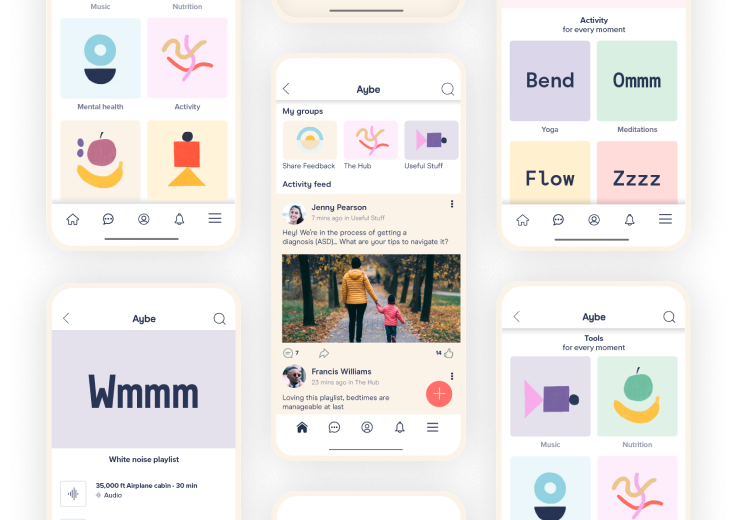5 Simple Steps to Use Music to Relax

Understanding the appropriate steps to use music to relax is essential, as it has the ability to heal.
That’s why we see evidence of Music Therapy throughout history and across cultures, and why we so often turn to our favourite songs when things get overwhelming or tough. In World War I and World War II, doctors even hired musicians to play in hospitals when they realised how much it helped wounded soldiers’ recovery.
Music Therapy has been shown to increase the perceived effectiveness of patients’ treatments, including pain reduction, better heart rate and function, steadier breathing, and lower levels of anxiety. We even have evidence that listening to the right kinds of music can relieve pain after surgery and lower the needs for other pain relief measures.
Join the Community
Download the app to access more specialist advice, community support and wellbeing tools.
Join today as a Contributor member to gain free* access!
Download now
*Free access, in return for contributing to Aybe on a weekly basis, for example by commenting, liking, responding to feedback requests. See Terms & Conditions.

But what about between those bigger crises?
Like so many health and wellness tools, we often wait to turn to music until it feels desperate instead of consistently tapping into it to help prevent a larger need later on.
One wonderful way to do this is to intentionally use music to help relieve stress as you feel it start to build up. Every person will experience stress from time to time, but sometimes certain seasons of our lives can make it seem like it’s showing up more and more.
That’s tough, as stress can have a long list of follow-on consequences for us, like physical symptoms of pain and tension, mood changes, impulsive decisions, lashing out at people we care about, forgetting important things, losing sleep, struggling to get our tasks done, and more.
Ways Music Can Help Relieve Stress:
Physical and Emotional Relief
This is the easiest for us to grasp, as music’s impact on our body and emotions is what makes us love it so much. We have studies to show just how specific and powerful those impacts can be, from allowing people to process deep complex trauma to bringing them back to a desired emotion in an everyday moment.
Music has been shown to have measurable positive outcomes on everyday physical symptoms, too. It can lower heart rates, regulate breathing, relieve tension or chronic pain, and more.
Motivation
Sometimes stress may actually be caused by a growing to-do list or from struggling to gather the motivation or courage to tackle something important (but a bit scary). Music can help here, too, if you find a song to help you focus or build up your self-confidence.
Motivation from music can also help patients engage in their other treatments more effectively. That means they may get a mood boost in the moment, as well as the stress relief of less physical pain or worry in the long run as their body heals.
Communication
When we’re in a stressful situation or are carrying things that feel heavy, it can be tough to communicate clearly. That can lead to repressed concerns, trauma, or strained relationships with the people around us, and starts a cycle of adding even more stress to an already tough time.
In these situations, lyrics give us a wider way to communicate with ourselves and others. They can help us find words for tough concepts and often offer a safe approach for expressing ourselves.
Memory
Few things trigger our memory like music. That means that we can apply it to help bring back past experiences and emotions, reminisce with others, or work through some things that are still impacting us.
Music also can help us to support our long and short-term memory formation, which means that it can give us a boost if creating or retaining new understanding or thought patterns is needed to help our stress relief.
Movement
Whether it’s that added motivation to tackle needed treatment or a simple urge to dance along with some favourite songs, music often gets us moving. Movement has been shown repeatedly as a great mood booster and a powerful tool for stress-relief.
5 Simple Steps to Use Music to Relax
So, how can you use the benefits of music to relax more and lower the effects of stress on your day-to-day life? Any help is good, but you can be more intentional to get a bigger impact when you hit play.
Here are some simple steps:
-
- Pinpoint how you feel. What’s at the root of your stress? Do you need to rest? Are you in pain? Are you struggling to tackle something important?
- Think about how you want to feel. What music and activities have helped you feel more like that in the past? Do you need to process anything?
- Resolve disharmonies. Is there anyone else who’s involved in the stress or the process you’ve identified to relieve some of it? What do you need to communicate with them? Is there anything you need to sort through yourself?
- Think about other support you need. Relaxing or relieving stress in the moment is great, but it’s not always a stand-alone solution. Who do you need to reach out to or what other support do you need to get?
- Find music that fits those answers!
Learning how to use music to relax and relieve stress is an important skill that’s simple to use and easily accessible, so having it in our mindfulness and self-care toolkit is invaluable!
Have you checked out our Music playlists to help you unwind and relax? We’ve carefully assembled it to fit the science and needs we’ve talked about here and we’re confident you’ll love it.
Tap into our evidence-based mindfulness strategies and sleep strategies too and spot where music feature in these.
To access our Music playlists on the go, sign up to our app and let us know what you think!
Join the Community
Download the app to access more specialist advice, community support and wellbeing tools.
Join today as a Contributor member to gain free* access!
Download now
*Free access, in return for contributing to Aybe on a weekly basis, for example by commenting, liking, responding to feedback requests. See Terms & Conditions.





